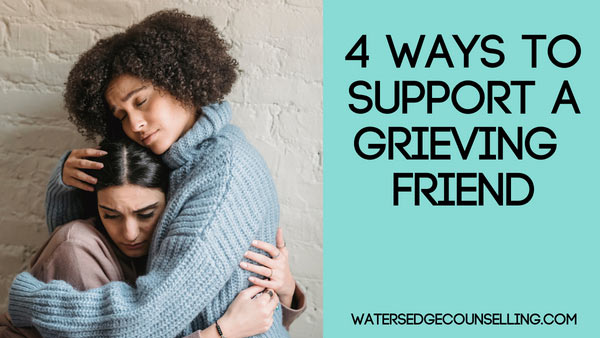
It is heartbreaking to see a death announcement on social media. Those of us who are close to the family may find out before hand, but the guttural feeling is the same: the heartbreak of your friend losing someone, the misery over the prolonged or untimely death of the person, and the sense that nothing can ‘fix’ this. We want to support our friend, but we don’t always know how. Often, we are scared we will say the wrong thing or make it worse.
Is that you? Here are four ways you can support your grieving friend.
- Send a personal message
Depending on your relationship with the person who passed and their family, how you express your condolences will vary. Sometimes a heart on social media and a comment is enough. Other times a personal message or text is timely, or you may send a card including good memories of the person. Your words won’t heal their grief – that’s impossible. But they will be comforted by your support.
- Don’t demand their attention
Sometimes we commandeer a conversation with our friend because we want to help them SO MUCH. It’s important your friend knows you are available, but don’t try and instigate a deep 10-minute conversation about their loved one’s last days. This will happen particularly at the funeral, when plenty of people will want to share their regards also. Instead, leave things open ended. “I’m here if you need anything,” is a safe way to show your intent to help without overwhelming them.
- Follow through
The chances of your friend following up if they need anything is slim to none. They may be so exhausted and numb that they don’t even know what they want, or won’t have the energy to ask for it. Instead, have an approach of doing small acts from a distance (again this depends on your relationship with the person). Instead of giving them flowers, make them a meal or given them a food delivery voucher. Invite them over for coffee or a meal, but don’t pressure them to see you. If you are close, offer to come around and just be with them. If your friend chooses to open up about their grief, then listen and empathise with them.
- Be consistent
People will flock to support your friend in the weeks following the death of their loved one, but we naturally step back as life goes on. For those who are grieving, the pain remains consistent and palpable. This is when being a consistently good friend is important. Be aware that anniversaries, birthday or holidays may be particularly painful for them. Follow their updates on social media to see how they are feeling, and invite them over for a meal or a coffee. Send them a “Thinking of you,” text message or a small gift if you are close. Just let them know that they are seen and loved – that is enough.
Are you grieving the death of a loved one? Are you concerned about a friend or family member? Call Colleen on 0434 337 245 or Duncan on 0434 331 243 for a FREE 10-minute phone consultation on how we can best help you, or press book now.